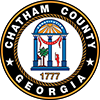Special Purpose Local Option Sales Tax (SPLOST)
In summary, the Special Purpose Local Option Sales Tax (SPLOST) enabled Chatham County as a community of about 240,000 citizens to invest over $1.5 billion in capital improvements. This valuable economic engine not only provided a popular way to fund necessary capital improvements in roads, drainage, recreation, economic development and civic projects but also helped to fuel the local economy in jobs and construction. The Savannah Area Chamber of Commerce estimates that buyers from outside of Chatham County pay 40% of the sales tax.
Of Georgia’s 159 counties, only Chatham County has the distinction of implementing SPLOST when it first became authorized (1985) and continuing it every year thereafter. Under the law, the 1% increase in the sales tax can be used for a specific period/dollar amount for certain capital projects (i.e. roads, courthouses, recreation and libraries) and other projects by interlocal agreement, such as drainage and civic and community-based improvements.
SPLOST has proved a popular revenue source. Voters have approved it in every election (1985, 1989, 1993, 1995, 1998, 2003). With an 80%+ approval rate, the current tax will expire September 30, 2020.
Through the added penny, Chatham County will have generated over $1.5 billion, including interest earnings. Add to this amount some $500 million in funds leveraged from the Georgia Department of Transportation for road projects, the value of an added penny totals some $1.5 billion. This number does not include matching state funds for other projects and private foundation funding for civic and community projects.
To put this amount of money into perspective for a community of Chatham County’s size, these funds have enabled more public improvements during a 20-year period than the sum total of public improvements (excluding ports and schools) during the past century.
To generate the sales tax revenues from ad valorem taxes during a comparable 20-year period would cost the owner of a $100,000 home more than $12,000 in added property taxes.
While Chatham County has used 73% of the funds for roads and drainage, voters have approved use of the funds for many other quality of life issues:
- Funding of the Savannah International Trade and Convention Center provides a recurring economic impact through more than $200 million more in visitor spending, which will create some 1,900 service-related jobs. The Trade Center also became the economic engine for the development of Hutchinson Island, a mixed-use 600-acre development which will add more than $800 million in new real estate value.
- Funding of the Olympic Legacy Program provides recreational projects, including an Olympic-sized competitive Aquatic Center, Olympic Track, Soccer Complex and Weightlifting Center.
- Funding of various historic and cultural projects provides a catalyst for matching private funding for the completion of such noteworthy renovation projects such as the Lucas Theater, Owens-Thomas House, Dr. Mark Ralph Gilbert Civil Rights Museum, King-Tisdell Cottage and Telfair’s Jepson Arts Center.
- Funding of various municipal projects also helps improve local communities through use of the sale tax law’s intergovernmental provisions. Chatham County distributed funds to Savannah and other municipalities for specific city projects including parks, sidewalks, municipal buildings and public safety equipment. This greatly reduces the burden on property for big-ticket capital items.
Public accountability can be assured by independent annual audits of the sales tax funds. State law requires that the funds remain separate by collection period, and each audit provides a listing of projects, budgets and expenditures on an annual basis.

 Part of ChathamCountyGA.gov
Part of ChathamCountyGA.gov